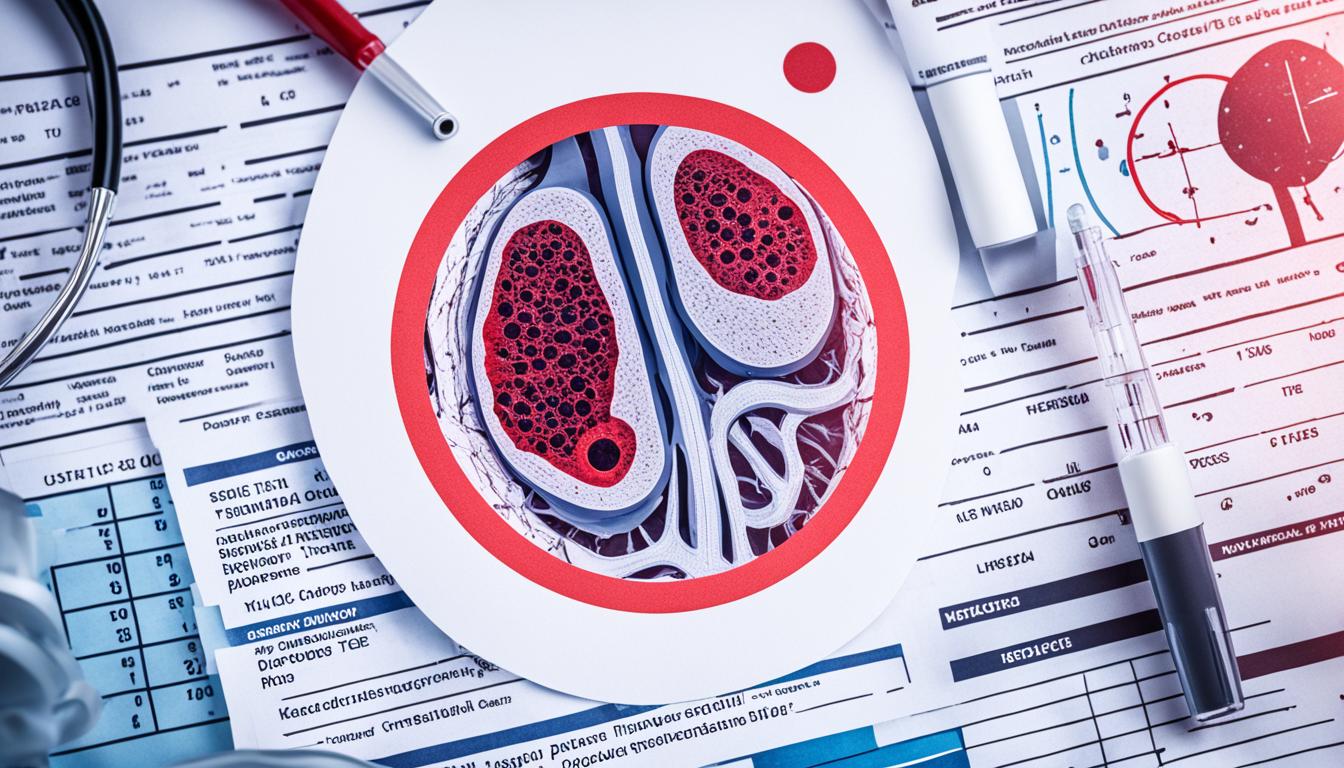Pancreatic cancer is a challenging condition to diagnose accurately. Its symptoms often overlap with other more common ailments, leading to misdiagnosis. Understanding the risks associated with misdiagnosed pancreatic cancer is crucial for patients and healthcare providers alike.
In the United States, numerous cases of individuals being misdiagnosed with pancreatic cancer have been reported. This misdiagnosis can have significant consequences, as it may result in delayed treatment, leading to the cancer advancing to later stages.
The misdiagnosis of pancreatic cancer is often attributed to the complexity of its symptoms, which can mimic other gastrointestinal conditions. Back and abdominal pain, digestive disorders, and even diabetes can be mistaken for pancreatic cancer, leading to delayed or incorrect diagnoses.
As a patient, it is important to be aware of the potential for misdiagnosis and to advocate for thorough medical evaluations. By working closely with healthcare providers and being proactive in seeking second opinions, you can increase the likelihood of an accurate diagnosis.
For healthcare providers, it is essential to recognize the challenges in diagnosing pancreatic cancer and to consider it as a potential diagnosis in patients with relevant symptoms. Implementing comprehensive diagnostic protocols and staying updated on the latest research and guidelines can help improve accuracy.
This article will explore the complexities of diagnosing pancreatic cancer and delve into the common misdiagnoses that can occur. It will also discuss the risk factors and early symptoms that are often overlooked, as well as the critical role of accurate diagnosis and early detection in improving treatment outcomes.
Key Takeaways:
- Misdiagnosed pancreatic cancer can result in delayed treatment and worse outcomes.
- Pancreatic cancer symptoms can be mistaken for other gastrointestinal conditions.
- Patients should be proactive in seeking second opinions and advocating for thorough evaluations.
- Healthcare providers should consider pancreatic cancer as a potential diagnosis in patients with relevant symptoms.
- Accurate diagnosis and early detection are crucial for improved treatment outcomes.
Introduction to the Complexity of Diagnosing Pancreatic Cancer
Diagnosing pancreatic cancer is a complex task for healthcare providers due to the non-specific nature of its symptoms and the overlapping manifestations it shares with other gastrointestinal conditions. The difficulty in accurately diagnosing pancreatic cancer poses significant challenges, making it crucial to understand the complexities involved to improve patient care and outcomes.
Pancreatic cancer often presents with symptoms that are not specific to the disease, such as abdominal pain, weight loss, and jaundice. These symptoms can be attributed to various other conditions, leading to misdiagnosis or delayed diagnosis. Furthermore, the overlapping nature of symptoms with gastrointestinal ailments, such as pancreatitis or digestive disorders, adds to the complexity of identifying pancreatic cancer at an early stage.
Early detection is crucial in increasing the chances of successful treatment and improving patient outcomes. However, the difficulties in diagnosing pancreatic cancer often result in delayed detection, leading to advanced stages of the disease. This limits the treatment options available and reduces the overall prognosis for patients.
The Importance of Early Detection
Early detection of pancreatic cancer significantly improves the chances of successful treatment and long-term survival. By identifying the disease at an early stage, healthcare providers can explore treatment options such as surgery, chemotherapy, or radiation therapy when the tumor is still localized and more responsive to intervention. Additionally, early detection allows for the management of symptoms and the implementation of supportive care measures to alleviate the patient’s discomfort and improve their quality of life.
Healthcare providers must be aware of the challenges associated with diagnosing pancreatic cancer and the importance of early detection. By maintaining a high level of suspicion for the disease and conducting thorough evaluations, healthcare professionals can improve their ability to accurately diagnose pancreatic cancer, potentially leading to better outcomes for patients.
Common Misdiagnoses and Their Consequences
Misdiagnosis of pancreatic cancer can have serious implications for patients, leading to delayed treatment and potentially worse outcomes. This section will explore the common misdiagnoses associated with pancreatic cancer and the consequences they can have for both patients and healthcare providers.
Gallstones and Gallbladder Disease Crossover
Gallstones and gallbladder disease share similar symptoms with pancreatic cancer, such as abdominal pain and digestive issues. This can lead to a misdiagnosis of gallstones when pancreatic cancer is the underlying condition. Misdiagnosing pancreatic cancer as gallbladder disease can result in delays in appropriate treatment and the missed opportunity for early intervention.
Confusion with Gastrointestinal Ailments
The non-specific symptoms of pancreatic cancer, including abdominal discomfort, weight loss, and changes in bowel movements, can often be attributed to gastrointestinal ailments like gastritis or irritable bowel syndrome. This overlap in symptoms can lead to a misdiagnosis, delaying the detection and treatment of pancreatic cancer.
The Overlap with Diabetes and Digestive Disorders
Another common misdiagnosis of pancreatic cancer occurs when the symptoms resemble those of diabetes or other digestive disorders. Weight loss, fatigue, and increased thirst can be indicative of both conditions, leading to a potential misdiagnosis and delays in appropriate management.
Misinterpretation of Back and Abdominal Pain
Back and abdominal pain are common symptoms of various medical conditions, including pancreatic cancer. However, misinterpreting these symptoms as musculoskeletal issues or gastrointestinal discomfort can result in a delayed diagnosis of pancreatic cancer, reducing the chances of successful treatment.
Healthcare providers must be aware of these common misdiagnoses and their consequences. By recognizing the overlapping symptoms and risk factors associated with pancreatic cancer, healthcare providers can improve their diagnostic accuracy and ensure timely management for patients.

Risk Factors and Early Symptoms Often Overlooked
Identifying the risk factors associated with pancreatic cancer and recognizing the early symptoms is crucial for early detection and improved outcomes. Unfortunately, these factors are often overlooked, leading to missed opportunities for diagnosis.
To effectively identify potential cases of pancreatic cancer, patients and healthcare providers need to be well-informed about the following:
- Risk Factors: Several risk factors increase the likelihood of developing pancreatic cancer. These include:
- Advanced age
- Smoking
- Familial history of pancreatic cancer
- Obesity
- Chronic pancreatitis
- Diabetes
- Abdominal or back pain
- Unexplained weight loss
- Jaundice
- Loss of appetite
- Fatigue
- Digestive problems

By understanding and paying attention to these often overlooked risk factors and early symptoms, individuals can be proactive in seeking timely medical evaluation. Healthcare providers can also play a crucial role in maintaining a high level of suspicion for pancreatic cancer when evaluating patients with these risk factors or experiencing these symptoms.
The Critical Role of Accurate Diagnosis and Early Detection
Accurate diagnosis and early detection play a crucial role in improving the prognosis and treatment outcomes for patients with pancreatic cancer. Without timely identification, the impact of delayed diagnosis on treatment success can be significant. Patients may miss out on potentially life-saving interventions and experience worse outcomes.
The Impact of Delayed Diagnosis on Treatment Success
Early diagnosis allows for more effective treatment options and increases the likelihood of successful outcomes. When pancreatic cancer is diagnosed at an advanced stage, treatment becomes more challenging and less effective. The chances of successful surgical intervention decrease, and patients may require more aggressive treatment methods, such as chemotherapy or radiation therapy, which can result in more side effects and a lower quality of life.
Furthermore, delays in diagnosis can also mean that the cancer has spread beyond the pancreas, making it harder to control and eradicate. This can lead to worse survival rates and limited treatment options.
Advancing Technological Aids in Early Detection
Technological advancements have been instrumental in improving the early detection of pancreatic cancer. Innovative screening methods, such as imaging techniques and genetic testing, can help identify potential cases before symptoms manifest. These tools allow healthcare providers to detect pancreatic cancer at its early stages when it is more treatable and offers a better chance of survival.
For instance, computed tomography (CT) scans can provide detailed images of the pancreas, helping to identify tumors or abnormalities. Endoscopic ultrasound (EUS) can aid in visualizing the pancreas and obtaining tissue samples for accurate diagnosis. Additionally, genetic testing can identify specific genetic mutations associated with pancreatic cancer, enabling targeted screening and early intervention.

Misdiagnosed Pancreatic Cancer: Legal Implications and Patient Advocacy
Understanding Healthcare Provider Accountability
Misdiagnosed pancreatic cancer can have serious legal implications for healthcare providers. When a patient’s pancreatic cancer is misdiagnosed, resulting in delayed or incorrect treatment, it can have devastating consequences for the patient and their loved ones. Healthcare providers have a responsibility to adhere to the standard of care and accurately diagnose their patients.
Accountability in the context of misdiagnosed pancreatic cancer refers to the legal obligation of healthcare providers to provide a standard level of care, which includes accurately diagnosing and timely treating patients. When healthcare providers fail to meet this standard, they may be held accountable for negligence or medical malpractice.
Legal Recourse: Navigating Medical Malpractice Claims
Patients who have experienced misdiagnosed pancreatic cancer may have legal recourse through medical malpractice claims. Medical malpractice occurs when a healthcare provider’s negligence leads to harm or injury to a patient. In misdiagnosis cases, patients may be able to seek compensation for the damages they have suffered due to the delayed or incorrect treatment.
Navigating medical malpractice claims can be complex, requiring a thorough understanding of the legal system and the specific requirements for proving negligence. It is important for patients to consult with an experienced medical malpractice attorney who can guide them through the process and advocate for their rights.
Patient Advocacy: Fostering Improved Communication
Patient advocacy plays a crucial role in preventing misdiagnosis and improving patient outcomes. By advocating for themselves and actively participating in their healthcare, patients can help ensure that their symptoms are properly evaluated and that they receive accurate diagnoses. Effective communication between patients and healthcare providers is vital in the diagnosis and treatment of pancreatic cancer.
Furthermore, patient advocacy organizations can provide valuable support and resources for individuals affected by misdiagnosed pancreatic cancer. These organizations can help patients navigate the healthcare system, connect them with experienced healthcare professionals, and offer emotional support during the challenging process of seeking justice.

Conclusion
After exploring the complexities and challenges associated with diagnosing pancreatic cancer, it becomes evident that misdiagnosis can have detrimental consequences for patients. The overlapping symptoms of pancreatic cancer with other ailments, such as gallstones, gastrointestinal issues, and diabetes, contribute to delays in treatment and potentially worsen outcomes.
Recognizing the risk factors and early symptoms often overlooked is crucial for timely diagnosis. By understanding these factors, patients and healthcare providers can be better equipped to identify potential cases of pancreatic cancer, leading to improved treatment success rates.
In cases of misdiagnosed pancreatic cancer, legal implications and patient advocacy play important roles. Holding healthcare providers accountable for misdiagnosis is a critical aspect of ensuring quality patient care. Patients may have legal recourse through medical malpractice claims, highlighting the need for improved communication and collaboration between patients, healthcare providers, and the legal system.
In conclusion, by understanding the risks and consequences of misdiagnosed pancreatic cancer, both patients and healthcare providers can work together to improve outcomes and provide better care. The key takeaways from this article include the importance of early detection, the role of technological aids in diagnosis, and the significance of patient advocacy in preventing misdiagnosis. By focusing on accurate diagnosis and early detection, the prognosis for patients with pancreatic cancer can be significantly improved.




